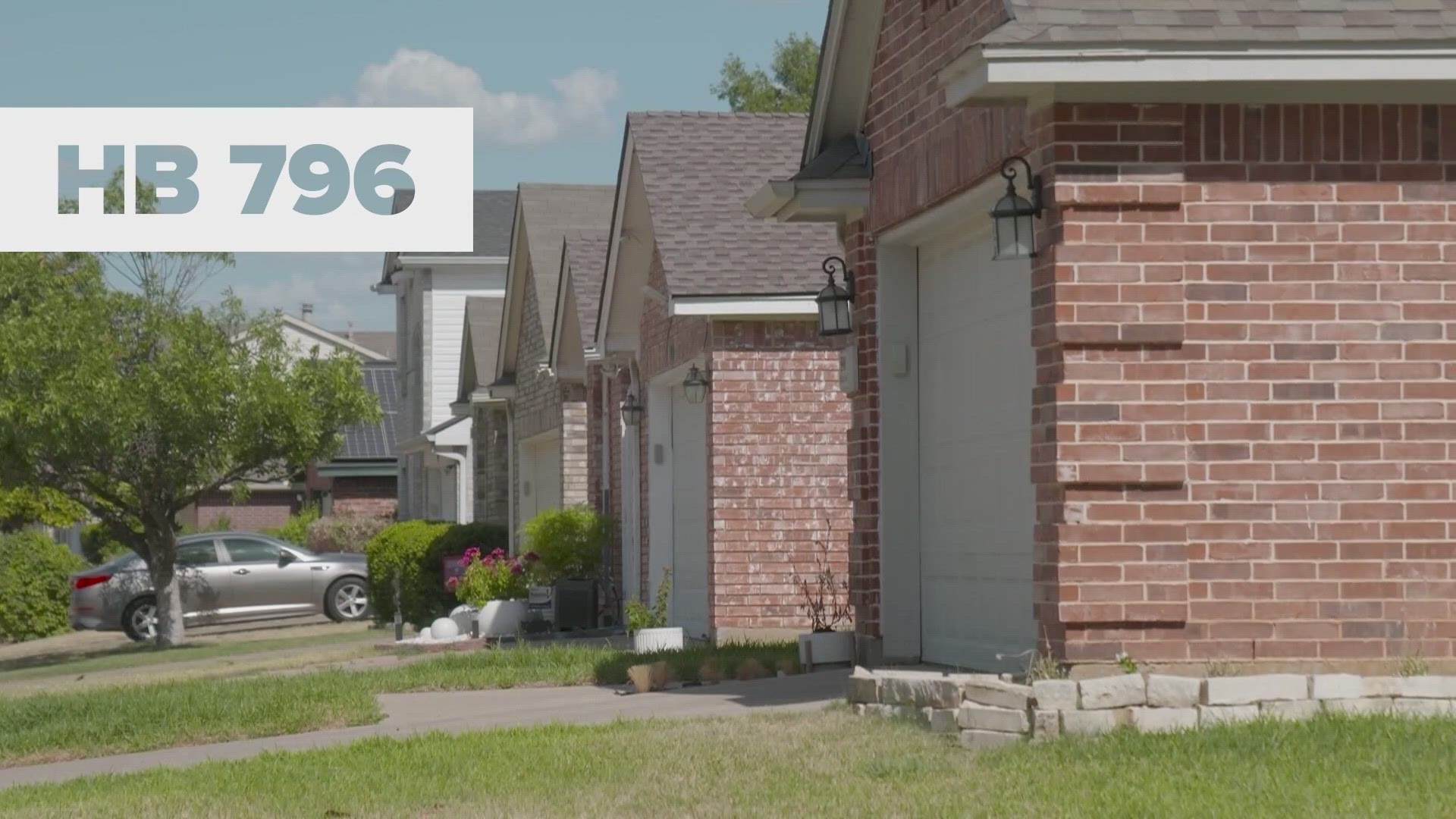TEXAS, USA — Texas’ anti-DEI law, along with several laws on taxes, are among the 30 laws that go into effect on Jan. 1, 2024.
Here is a breakdown of some of those laws.
Senate Bill 17 – Bans DEI initiatives at public institutions of higher education
Texas Senate Bill 17, known as the anti-DEI law, bans diversity, equity and inclusion (DEI) offices, programs and training at publicly funded universities.
The initiative makes Texas the second state in the country to ban such higher education initiatives. Florida also banned DEI spending earlier this year.
According to the final text of the bill, universities can't create diversity offices or hire employees to conduct DEI work. They also can't require any DEI training as a condition for being hired or admitted. University practices must be "color-blind and sex neutral."
The bill, which goes into effect Jan. 1, 2024, also states that university leaders can't spend state money until they comply with the new law and that university governing boards must create policies to discipline employees who violate it.
Senate Bill 10 - Cost-of-living adjustment for Texas Teacher Retirement System
Texas Senate Bill 10 gives members of the Texas Teacher Retirement System a cost-of-living adjustment. Voters then approved the COLA adjustment as Proposition 9 on the Nov. 7 election.
Proposition 9 authorizes a one-time COLA between 2% and 6%, depending on when the teacher retired.
Retired teachers haven't received a COLA since 2013.
House Bill 1595 - Texas University Fund
Texas House Bill 1595 renamed the National Research University Fund to the Texas University Fund. It also added Proposition 5 to the Nov. 7 ballot which voters approved.
Proposition 5 provided funding to certain institutions of higher education to achieve national prominence as major research universities and drive the state economy.
Those universities included:
- Texas State University
- Texas Tech University
- University of Houston
- University of North Texas
House Bill 614 - Relating to property owners' association fines
Texas House Bill 614 requires a property owners’ association board to adopt an enforcement policy regarding the levying of fines by the association. The policy must include general categories of restrictive covenants for which the association may assess fines, a schedule of fines for each category of violation, and information regarding hearings.
The law also requires the board to provide a copy of the policy to the owners of each property in the subdivision by posting the policy on a website maintained by the property owners' association and accessible to members of the association. The policy must also be sent out annually to each property owner via mail or email.
House Bill 2323 - Issuance of specialty license plates for the 100th anniversary of 'Texas, Our Texas'
Texas House Bill 2323 allows the Texas Department of Public Safety to issue specialty license plates designed to commemorate the 100th anniversary of the writing of the state song, "Texas, Our Texas," that include the words "Texas, Our Texas" and the dates "1924-2024."
After the deduction of the department's administrative costs, the remainder of the fee for issuance of the license plates will be deposited in the general revenue fund.
House Bill 4758 - Protecting Children from Electronic Cigarette Advertising Act
Texas House Bill 4758 makes it a criminal offense to market, advertise, sell, or cause to sell an e-cigarette product to minors. It would be a Class B misdemeanor.
This includes instances where the product’s container:
- Shows a cartoon-like fictional character that mimics a character primarily aimed at entertaining minors
- Imitates or mimics trademarks or trade dress of products that are or have been primarily marketed to minors
- Includes a symbol that is primarily used to market products to minors
- Includes an image of a celebrity
- Includes an image that resembles a food product, including candy or juice.
House Bill 796 - Creating a tax appraisal internet database
Texas House Bill 796 amends the tax code to require that each tax appraiser in each appraisal district to create and maintain an internet database regarding protest hearings done by the appraisal review board established by the district.

